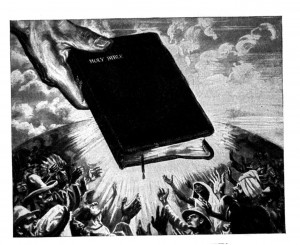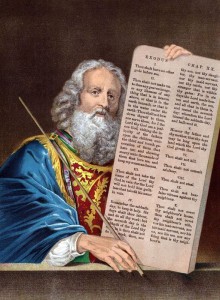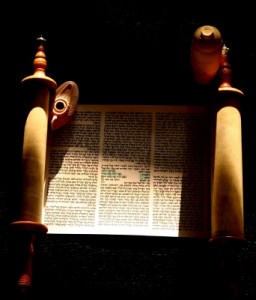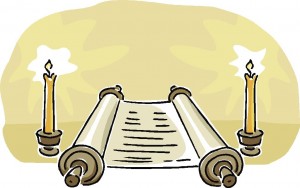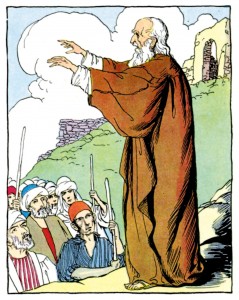Exodus 39:30, A crown of pure gold. What words were written on this golden crown that the high priest wore? Why did YHVH command that these words be written on the crown? To answer that question, think of this: What one word best describe who YHVH is? Most Christians would say that love is YHVH’s chief attribute. But is this what the Scriptures teach? Is there something higher? What are the six-winged seraphim declaring about YHVH Elohim day and night before his throne? (See Isa 6:5; Rev 4:8.)
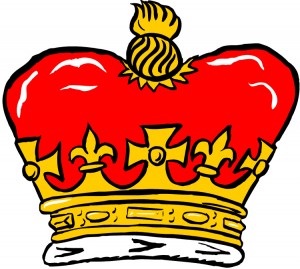 Now consider this. YHVH made man in his own image (Gen 1:26), and wants man to become like him in character (note Lev 11:44,45; 19:2; 20:7). Now read Revelation 14:1 and compare with Revelation 7:3. What does YHVH put on the heads of his end-times servants? What are the two noteworthy characteristics of YHVH’s end-times saints? (Note Rev 12:17; 14:12.) Holiness, Torah-obedience and a faith in Yeshua all go hand-in-hand.
Now consider this. YHVH made man in his own image (Gen 1:26), and wants man to become like him in character (note Lev 11:44,45; 19:2; 20:7). Now read Revelation 14:1 and compare with Revelation 7:3. What does YHVH put on the heads of his end-times servants? What are the two noteworthy characteristics of YHVH’s end-times saints? (Note Rev 12:17; 14:12.) Holiness, Torah-obedience and a faith in Yeshua all go hand-in-hand.
Now let’s bring this brief discussion full circle. As the high priest of old wore a gold crown inscribed with the words “Holiness to YHVH,” what does YHVH expect of his end-times saints? (See Heb 12:14; 1 Pet 1:15.) What does Peter call the saints of the Holy One of Israel? (See 1 Pet 2:9.) What will YHVH’s saints become in Yeshua’s Millennial kingdom? (Read Rev 1:6; 5:10; 20:6.)
The word holiness (Heb. kadosh) as used in the Scriptures simply means “set-apart or the state of that which belongs to the sphere of the sacred, and which is distinct from the common or profane.” Elohim as the Creator is transcendent above his creation or that which is profane, earthly or worldly.
Being kadosh isn’t only a positional consideration, but an ethical one as well. The Torah is a reflection of the ethical qualities of Elohim, and is man’s ethical code book showing him how to be holy, set-apart or kadosh as Elohim is. Holiness in the Torah involves what we think, what we say, and what we do.
This code of holiness which is a pathway to a relationship with our Father in heaven teaches us how to worship (or love) Elohim, and how to treat (or love) our fellow man. Yeshua, the Living Word or Torah of Elohim (John 1:1, 14) showed us how to walk out the Torah perfectly, and he then empowers us through his Spirit to live out the Torah’s holiness code, but this is another discussion.


